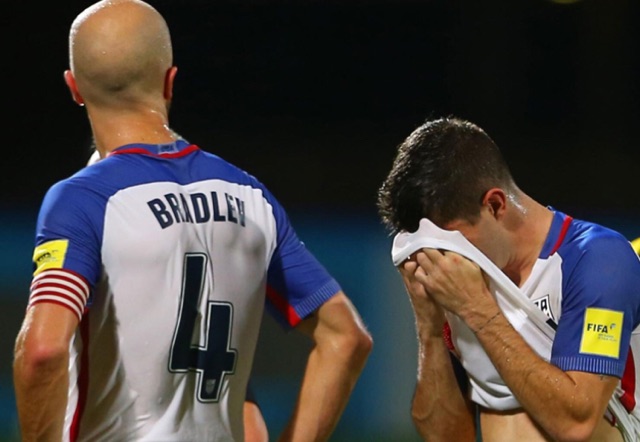Once again — as if I thought anything would change — the U.S. Soccer Federation has chosen the path of mediocrity.
After the U.S. men’s national team crashed out of World Cup 2018 contention in embarrassing fashion, they’ve sunk to a new low.
With 68.6 percent of votes earlier this morning, Carlos Cordiero becomes the 32nd president of the U.S. Soccer Federation. Cordiero’s election comes in the wake of former-president Sunil Gulati’s choice to not run for re-election.
His election has drawn ire from many soccer fans across the country for his “establishment” moniker along with his close ties to Gulati. The last leadership group oversaw over a decade of below-average soccer — to be polite — that has now come to a head in terms of development and Cordiero was there almost every step of the way.
In an interview back in November 2017 with Kevin Draper, a writer for the New York Times, Cordiero unsurprisingly echoed the same sentiment Gulati has spewed over the last decade when announcing his own candidacy.
“What we need in the federation is not to blow it up,” …. We’re not trying to create a revolution here, as some people are perhaps advocating. I think we’ve plateaued. We’ve done exceedingly well, but we’ve plateaued.”
He’s right about one thing, we are advocating for a revolution. The U.S. has some of the best athletes on the planet and yet, we can’t even beat Trinidad and Tobago or Costa Rica. No disrespect to those countries but are you kidding me? The U.S. has two wins in the last three World Cups and has only won eight wins in the competition , ever. Yet, we have done exceedingly well according to our new man in charge.
The U.S. finished fifth in the Confederation of North, Central American and Caribbean Association Football or CONCACAF for short behind Honduras, Panama, Costa Rica and Mexico. When I want a good laugh, I’ll go watch one of their more recent performances.
Yeah, it’s that bad.
I’m not saying there was a definitive candidate that could change everything, but Kyle Martino, a soccer analyst for NBC has knowledge of successful ideas in England or even Eric Wynalda. Wyndala was a former U.S. international who made over 100 appearances for our country along with scoring an impressive 34 goals.
What we needed was a fresh, new voice and that’s the opposite of what we got. The U.S. must abandon revenue-driven motives and focus on the talent level, starting at the youth. We don’t need another former banker in charge of developing our players.
It’s widely known that Christian Pulisic, Borussia Dortmund’s wonderkid and America’s new hope, has criticized our country’s soccer model. One of the reasons why Pulisic is worth close to 45 million euros according to multiple soccer outlets, is because he grew up in a different country.
In an interview with ESPN back in January of 2018, he didn’t hold back.
“I would say the youth systems in Germany have impressed me the most and how they grow their youth players into full professionals,” he said, adding that the U.S. “pay for play” system that relies on considerable financial contributions from parents “could be one of our problems” that stop the country from reaching its potential.
“I think what I learned and how I learned from going through when you’re 17 until you’re 19 and fighting everyday with other players””you’re fighting for a pro contract, really””is something we definitely can learn from. It’s a system that I’d never really experienced in the U.S. I would have never got something like this and I think this is the biggest reason why I’ve grown so much as a player.”
The U.S. needs a systematic overhaul if they ever intend to compete on the world stage and unless we appoint a candidate willing to put talent first over money, missing World Cups might become a normality.




